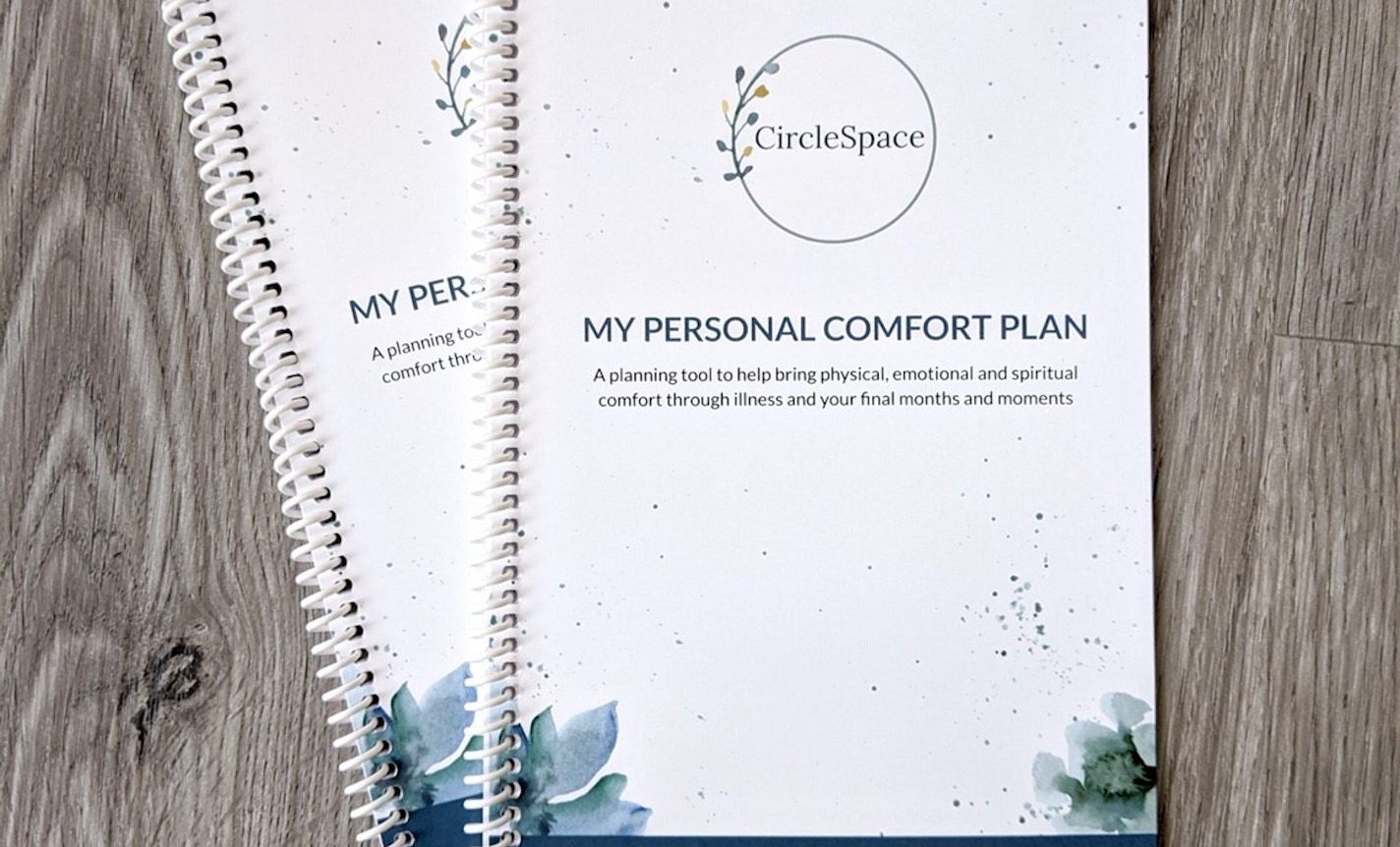This booklet guides you to answer the question, "how do you want to live as you are dying?" Enhancing your physical, emotional and spiritual comfort can reduce your pain and suffering, helping you feel a greater sense of control over your illness and dying process. Your loved ones and caregivers will look to your completed Personal Comfort Plan for ways to bring you solace, comforting them as they care for you, even if they can't be physically with you.
My Personal Comfort Plan includes information about:
- How a Personal Comfort Plan fits with other types of care like palliative and curative care
- Who should make a Personal Comfort Plan
- How a making a Personal Comfort Plan can help your loved ones
- An overview of the dying process including changes that may be expected in the final months, weeks and days
- How an end-of-life doula can help
The 7 Pillars of Personal Comfort Wishes include:
1) Comfort for My Body e.g. preparing a meal that reminds me of fond memories
2) Your Enironment e.g. playing your favorite music and the smell of lavender
3) Readings and Rituals e.g. reading a poem that lifts your spirits
4) Complementary Therapies e.g. a foot massage or healing touch
5) Who you Want with You e.g. surrounded by friends and family
6) How you Want to be Treated e.g. told what is hapenning even if you can't respond
7) Things You'd Like to Avoid e.g. people using their smartphones while visiting
"My Personal Comfort Plan is such a wonderful addition to a well-planned estate and death care plan and has been a missing piece until now. In my many years as an Estate and Trust Advisor and Funeral Director I’ve never seen anything like this. In most planning situations people only look after 1 or 2 components but like the spokes in a wheel, all components are required to make it function at its finest and this really rounds out and completes the planning piece. Way to go!" Susan Benesch, Funeral Director
My Inspiration
Last year, my mum was diagnosed with an aggressive brain tumor. In the span of 24 hours, she went from being totally independent, making decisions for herself, driving, and babysitting her grandchildren, to her neurologist telling me I would now be responsible for making her medical care decisions.
Thankfully, we had created an advance care plan. I knew her wishes and I felt confident in the decisions I was making for her. But as her daughter, I needed more than just the legal advance care planning documents. I needed to know how to care for her soul, her intellect, and how to comfort her body.
I remember standing next to her gurney in a noisy ER hallway. They didn't have a proper room for her for almost a whole day. I could see that she was cold. The blankets from the warming drawer just weren't cutting it. Her back was sore from sitting on the gurney with too few pillows for support. I could see that she was overwhelmed by the chaos of the ER. The bright lights kept her awake when she was so tired. People bustled by, the machines beeping. All I could do was try to steady her with my presence as best I could.
It was there that My Personal Comfort Plan was born.
Over the course of her brief illness, we found many ways to bring her comfort. It became my mission to care for her in this way. We adapted her environment: the noisy ER, hospital admission, even her home and eventually hospice. We brought in complementary therapists and practiced rituals to connect us and ground us.
Defining your personal comfort wishes is a key step in creating a Holistic Advance Care Plan - one that not only records your medical wishes but also serves your whole self. Your body, mind and spirit. This is especially important now that we are living through a global pandemic.
I've heard heart-wrenching stories of family caregivers leaving their loved one at the doorstep of the ER, unable to enter with them. Or families who cannot visit their loved ones in hospital or who are limited to one visit a day with their beloved in hospice. These policies are in place for everyone's health and safety, but being separated from your loved ones - those who know how to care for you best - can be gutwrenching.
My Personal Comfort Plan speaks for you when you can't speak for yourself. With this plan in hand, a nurse, doctor or palliative care volunteer can quickly understand what's important to you and find ways to bring you comfort.
No one wishes for illness or end of life in the absence of their dear ones. But in our new reality, it is something we must prepare for, just in case. Make defining your personal comfort wishes a priority using My Personal Comfot Plan.


 Back to Community Resources
Back to Community Resources


